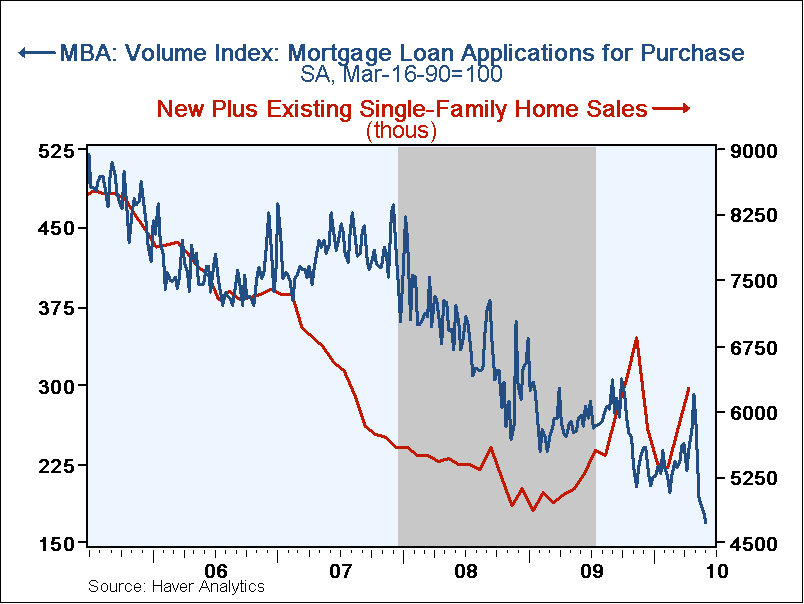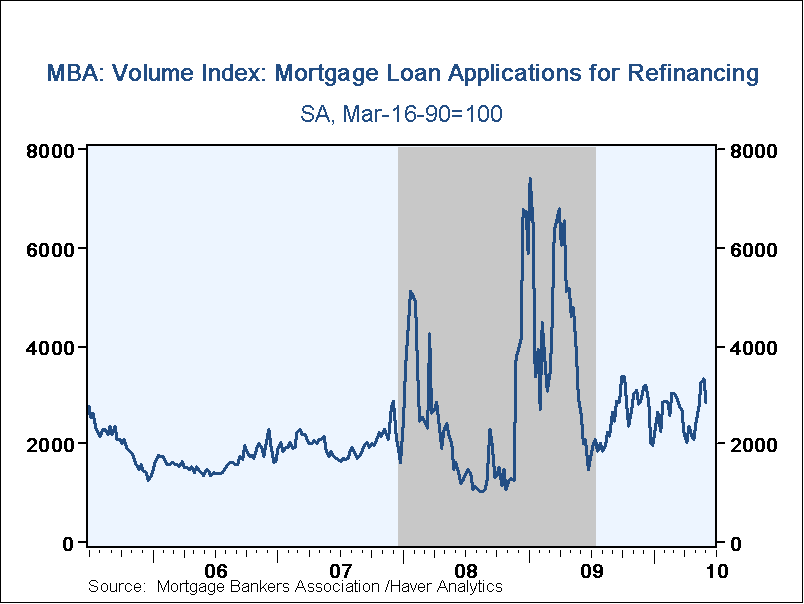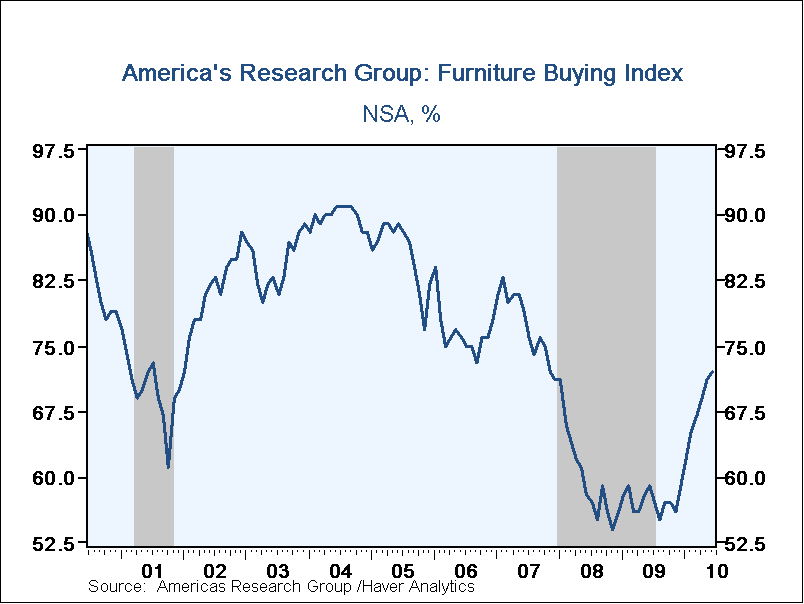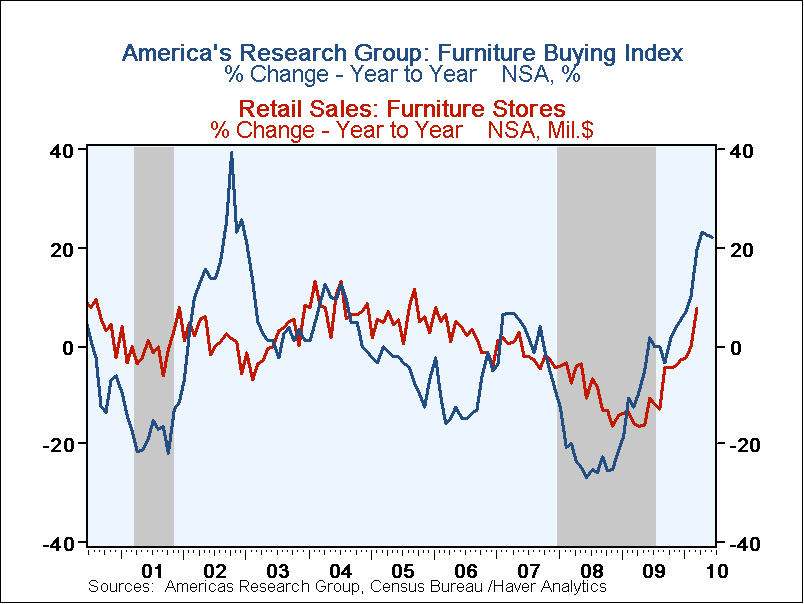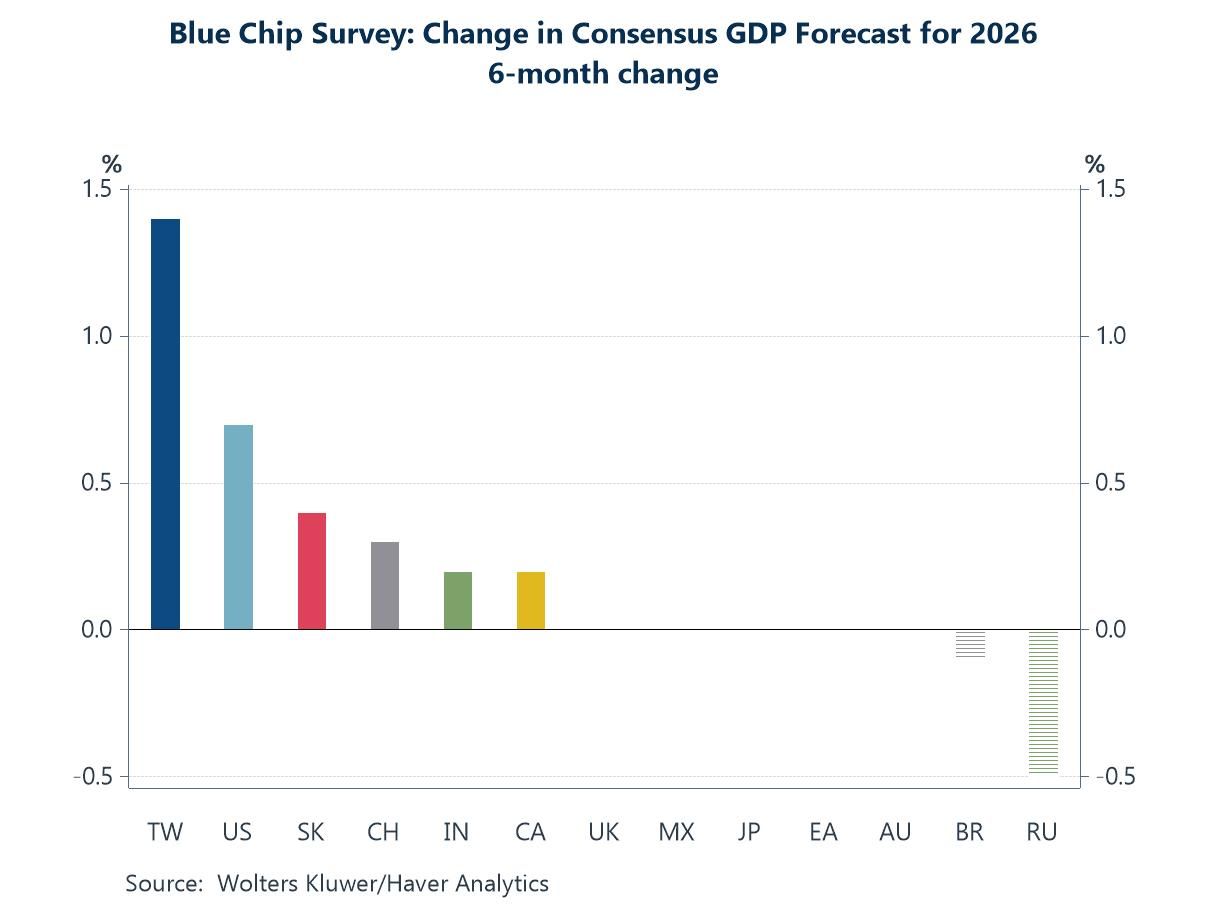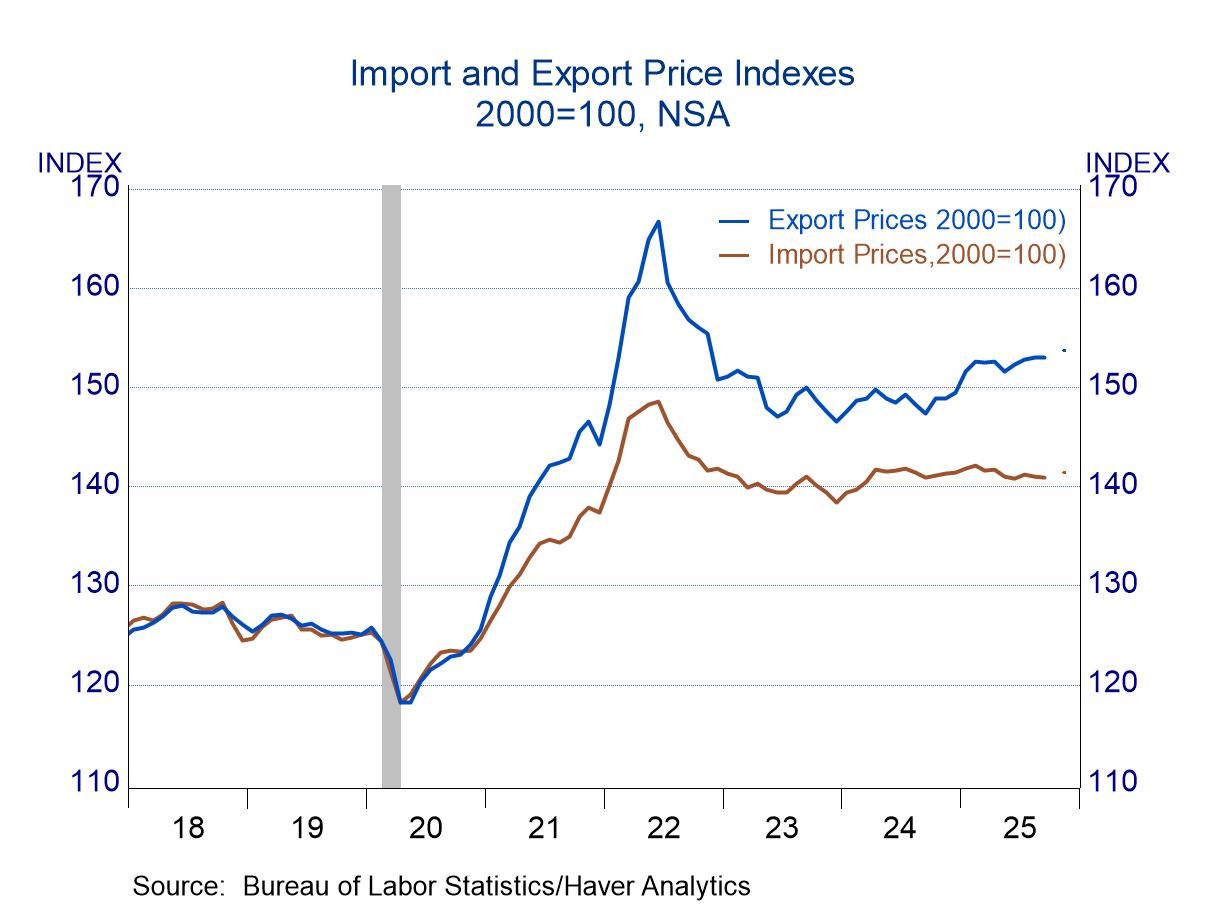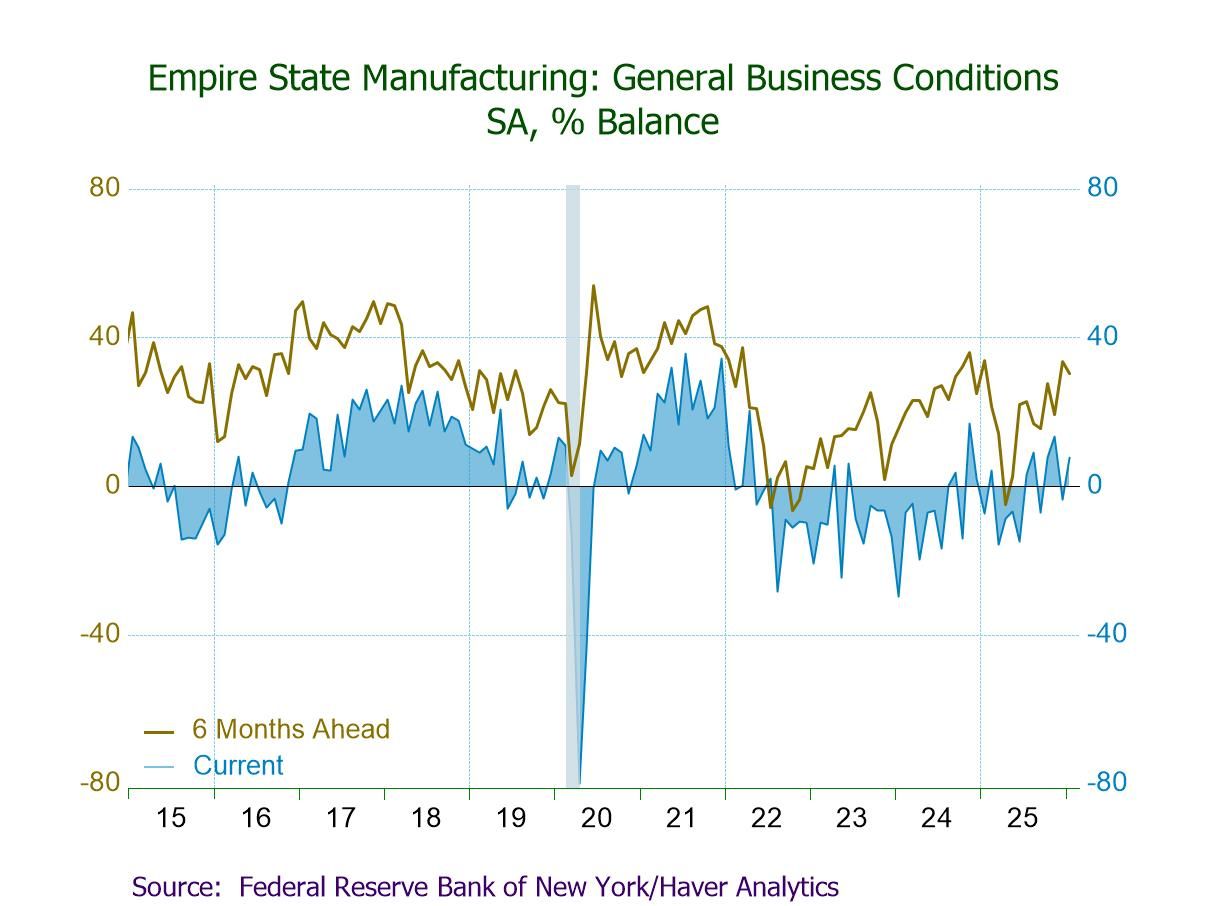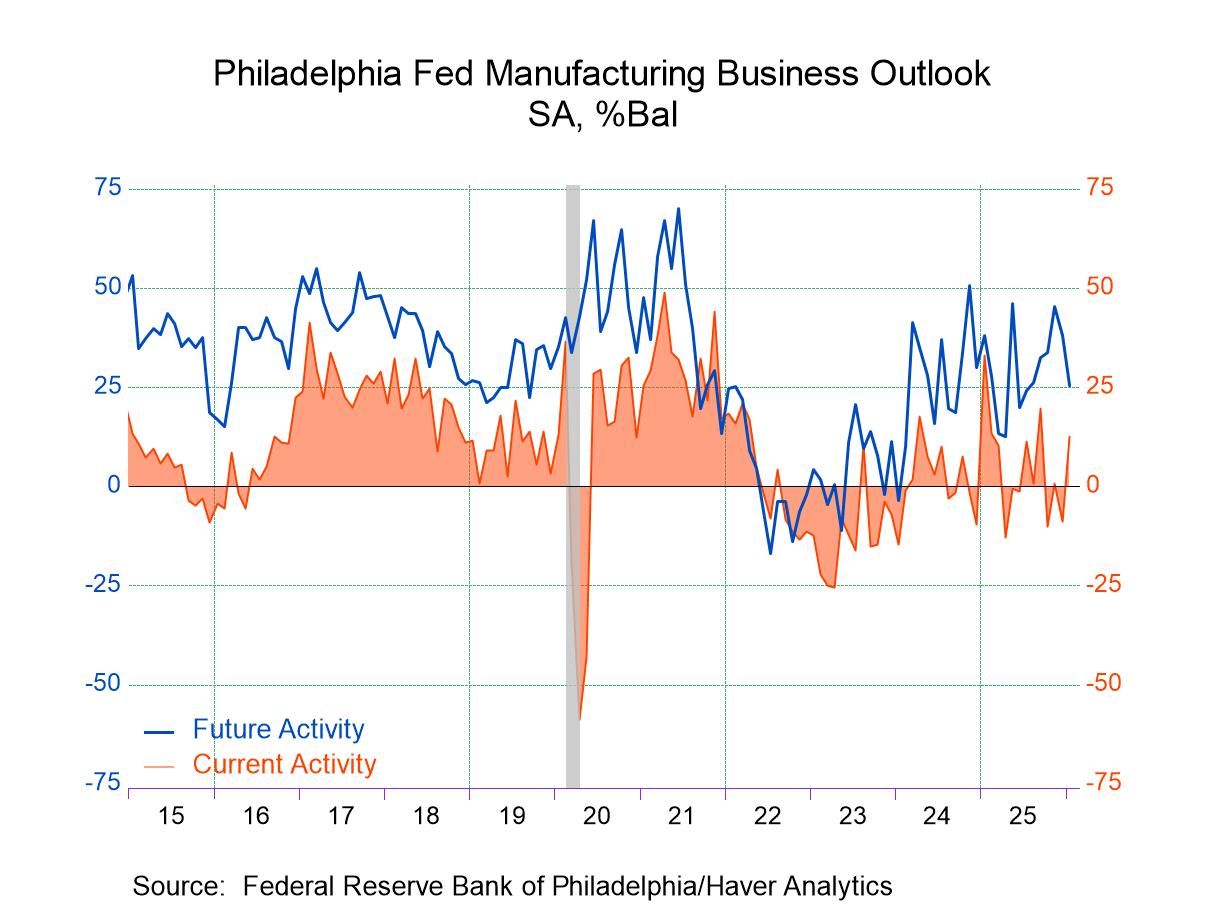 Global| Jun 09 2010
Global| Jun 09 2010U.S. Mortgage Applications Collapse
by:Tom Moeller
|in:Economy in Brief
Summary
Still in the shadow of the expiration of the government's housing tax credit, the Mortgage Bankers Association reported that mortgage applications fell sharply last week reflecting a collapse in purchase applications. Overall, [...]
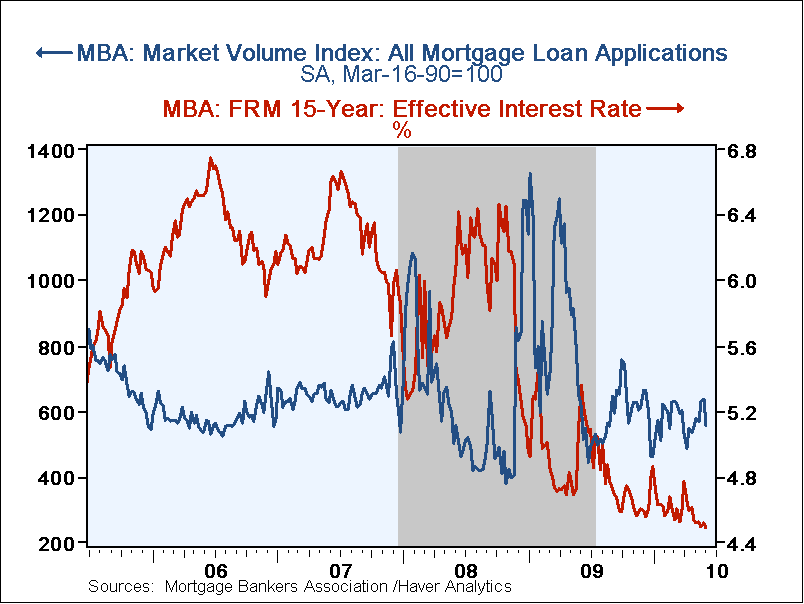 Still in the shadow of the expiration of the
government's housing tax credit, the Mortgage Bankers Association
reported that mortgage applications fell sharply last week reflecting a
collapse in purchase applications. Overall, applications fell 12.2% in
early June from the week earlier.
Still in the shadow of the expiration of the
government's housing tax credit, the Mortgage Bankers Association
reported that mortgage applications fell sharply last week reflecting a
collapse in purchase applications. Overall, applications fell 12.2% in
early June from the week earlier.
Applications to purchase a home dropped 5.7% w/w for the fifth consecutive week of sharp decline. During the last ten years there has been a 51% correlation between the y/y change in purchase applications and the change in new plus existing single family home sales. The correlation has lessened recently. Mortgage refinancings also fell by 14.3% and reversed increases during the prior two weeks.
The effective fixed interest rate on conventional 15-year mortgages averaged 4.49% during the latest week, a new cycle low. For 30-year mortgages the rate also fell to an average 5.01%. Interest rates on fixed 15-year and 30-year mortgages are closely correlated (near-90%) with the rate on 10-year Treasury securities. Rates on adjustable one-year mortgages held roughly steady at 7.01%.
The Mortgage Bankers Association surveys between 20 to 35 of the top lenders in the U.S. housing industry to derive its refinance, purchase and market indexes. The weekly survey covers roughly 50% of all U.S. residential mortgage applications processed each week by mortgage banks, commercial banks and thrifts. Visit the Mortgage Bankers Association site here. The figures for weekly mortgage applications are available in Haver's SURVEYW database.
Economic and financial conditions and the federal budget is this morning's House testimony by Ben S. Bernanke and it can be found here.
| BA Mortgage Applications (SA,3/16/90=100) | 06/04/10 | 05/28/10 | 05/21/10 | Y/Y | 2009 | 2008 | 2007 |
|---|---|---|---|---|---|---|---|
| Total Market Index | 560.9 | 639.0 | 633.5 | -8.2% | 736.4 | 642.9 | 652.6 |
| Purchase | 167.8 | 178.0 | 185.7 | -38.0 | 263.5 | 345.4 | 424.9 |
| Refinancing | 2,859.5 | 3,336.9 | 3,257.4 | 9.7 | 3,509.2 | 2,394.1 | 1,997.9 |
| 15-Year Mortgage Effective Interest Rate (%) | 4.49 | 4.52 | 4.50 | 5.21 (06/09) | 4.85 | 5.9 | 6.2 |
by Tom Moeller June 9, 2010
Plans to buy consumer durables are rebounding. The American Research Group, which surveys consumer buying intentions as well as other issues, indicated that their Furniture Buying Index rose this month to its highest level since November 2007. The index has rebounded by one-third from its recession low. During the last fifteen years there has been a 45% correlation between the y/y change in the index and the change retail sales at furniture stores
America's Research Group specializes in consumer research, marketing plans, strategic marketing, strategic planning, and marketing research. It interviews more than three million American consumers about their shopping habits.
In a typical month, 80 percent of the consumers interviewed can name a specific furniture item they intend to buy. The Index's mark signifies what percent of the benchmark 80% actually have a particular item in mind. The data can be found in Haver's SURVEYS database.
| America's Research Group | June | May | April | June '09 | 2009 | 2008 | 2007 |
|---|---|---|---|---|---|---|---|
| Furniture Buying Index | 72 | 71 | 69 | 59 | 57 | 60 | 77 |
by Robert Brusca June 9, 2010
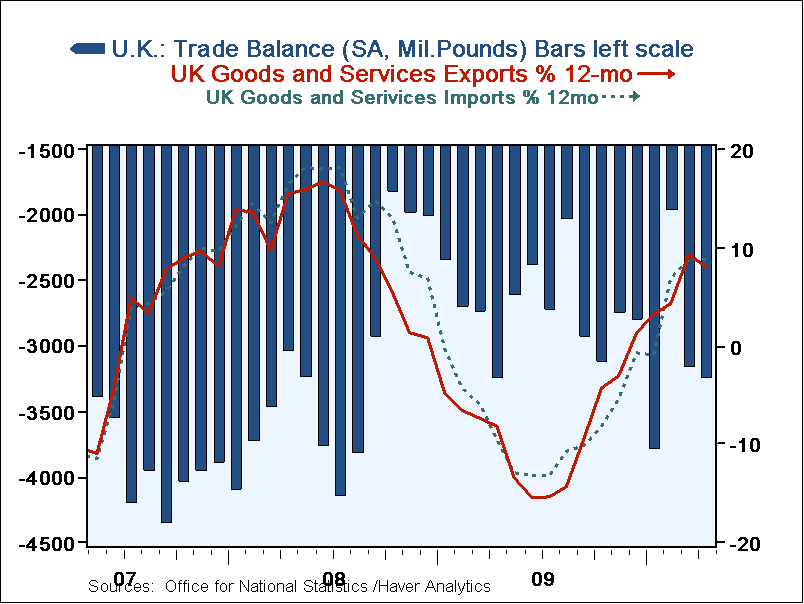 UK exports and imports each backtracked slightly in April after solid
to strong gains in March. The upshot is that the flirtation with
progress in deficit reduction has ground to halt and commenced a
backtracking over the last two months. This backtracking could be
reversed. This episode could be a pause in the process of ongoing
deficit reduction or it could be the start of some real backtracking.
For now it's too soon to tell. So we flash yellow cautionary lights
instead of red ones.
UK exports and imports each backtracked slightly in April after solid
to strong gains in March. The upshot is that the flirtation with
progress in deficit reduction has ground to halt and commenced a
backtracking over the last two months. This backtracking could be
reversed. This episode could be a pause in the process of ongoing
deficit reduction or it could be the start of some real backtracking.
For now it's too soon to tell. So we flash yellow cautionary lights
instead of red ones.
For now the trends in the UK data are still beneficial ones for the prospect of further deficit reduction. Imports are still growing solidly but steadily with growth rates of 10% to 13% over various horizons from one-year to 3-months. For exports the growth rates range from 13% to nearly 40% and the highest growth rates are more recent ones. That suggests that export growth is still on a strong track while imports are only steady. One worry of course is that with the Euro weakened and the German export machine turned on UK exports could suffer stiffer competition. But the pound has weakened even more than the euro. Moreover, Germany has done nothing to pump up domestic demand and the rest of Europe is under a cloud of austerity. Germany itself is considering further austerity moves.
In looking at the UK situation we have three facts to consider. One is that the trade deficit reduction process has been under way since that reduction has been somewhat effective. The second, is that the conditions that made that progress a reality seem to still be in evidence as export momentum seems stronger than import momentum over the more recent periods. The pound sterling has fallen in value, augmenting UK competitiveness even Vs the euro-area. The third point looks ahead: the macroeconomic facts of life seem to put the UK's back to the wall. Although it can still do well in exporting to the US which is growing solidly, the UK trade balance with the EMU group seems more likely to pose challenges. EMU sends 12% of its exports to the UK. It's an important market for EMU just as EMU is important to the UK. Moreover, conditions in EMU will affect the UK. The broad euro real effective exchange rate (trade-weighted and inflation adjusted) has gone from being 20% above its estimated parity rate to near parity in two years' time. There should be repercussions on trade flows from this in trade with the Zone's key trading partners. But during this period sterling has fallen sharply even against the Euro. The UK problem in penetrating the e-Zone will not be price competitiveness but it will be euro-demand. EMU growth is being stimulated by its trade flows riding the back of its weak exchange rate, not stimulated from within by domestic demand. In fact the UK deficit with EU countries widened to £3.3 billion in April, compared with a deficit of £3.2 billion in March. Exports rose by £0.1 billion and imports rose by £0.2 billion. A weak European consumer - even in the Europe's strongest economy, Germany - is the hurdle faced by UK exporters. Europe simply is not a strong market even although UK exports can profitably sell there.
| UK Trade trends for goods | |||||
|---|---|---|---|---|---|
| m/m% | % Saar | ||||
| Apr-10 | Mar-10 | 3M | 6M | 12M | |
| Balance* | - £ 7.28 | - £ 7.26 | - £ 6.94 | - £ 7.15 | - £ 6.90 |
| Exports of Goods | |||||
| All Exp | -0.6% | 1.0% | 38.9% | 13.3% | 14.9% |
| Capital gds | -1.3% | 1.2% | 3.1% | -3.3% | 2.8% |
| Road Vehicles | 11.5% | -3.2% | 59.9% | 22.5% | 77.3% |
| Basic Materials | -4.3% | 18.8% | 577.7% | 52.5% | 35.4% |
| Food Feed Bev & Tbco | -0.5% | 1.2% | 32.8% | 10.6% | 5.8% |
| Other Exports | -1.7% | 0.8% | 36.3% | 14.1% | 12.2% |
| Imports of Goods | |||||
| All IMP | -0.4% | 4.3% | 12.9% | 10.5% | 11.6% |
| Capital gds | 2.6% | -0.1% | 5.5% | 15.8% | 7.2% |
| Road Vehicles | 1.0% | 5.1% | 23.0% | 24.0% | 60.0% |
| Basic Materials | -5.7% | 6.1% | -4.7% | 23.0% | 19.7% |
| Food Feed Bev & Tbco | 1.9% | 1.7% | 22.1% | -0.5% | -1.0% |
| Other Imports | -1.3% | 5.3% | 12.4% | 8.9% | 9.2% |
| *Stg Blns; mo or period average. All data are seasonally adjusted | |||||
Tom Moeller
AuthorMore in Author Profile »Prior to joining Haver Analytics in 2000, Mr. Moeller worked as the Economist at Chancellor Capital Management from 1985 to 1999. There, he developed comprehensive economic forecasts and interpreted economic data for equity and fixed income portfolio managers. Also at Chancellor, Mr. Moeller worked as an equity analyst and was responsible for researching and rating companies in the economically sensitive automobile and housing industries for investment in Chancellor’s equity portfolio. Prior to joining Chancellor, Mr. Moeller was an Economist at Citibank from 1979 to 1984. He also analyzed pricing behavior in the metals industry for the Council on Wage and Price Stability in Washington, D.C. In 1999, Mr. Moeller received the award for most accurate forecast from the Forecasters' Club of New York. From 1990 to 1992 he was President of the New York Association for Business Economists. Mr. Moeller earned an M.B.A. in Finance from Fordham University, where he graduated in 1987. He holds a Bachelor of Arts in Economics from George Washington University.


